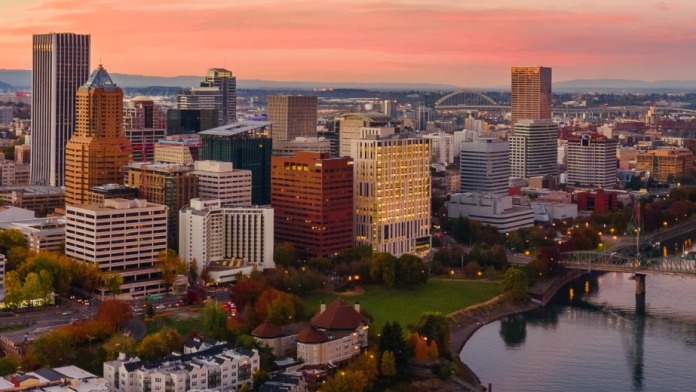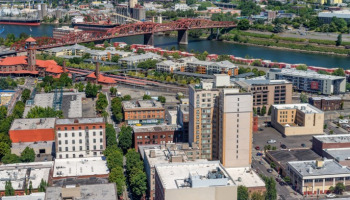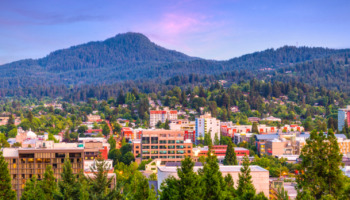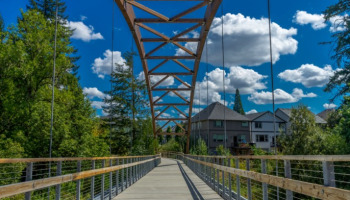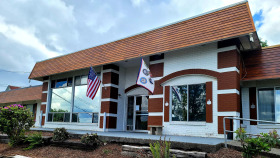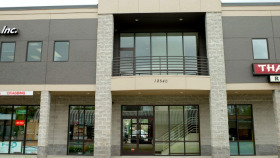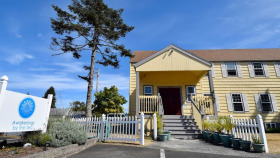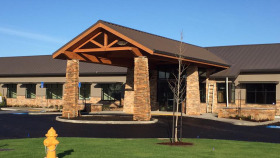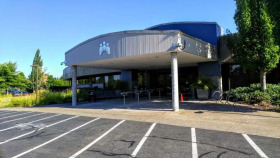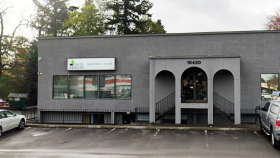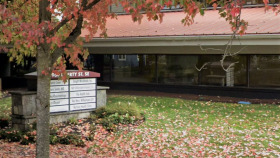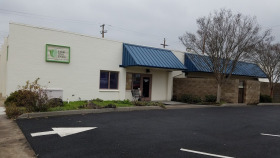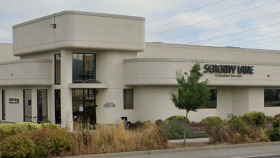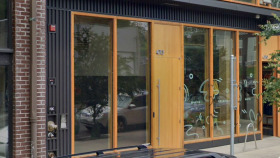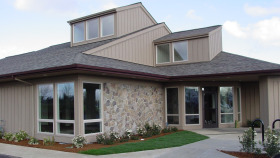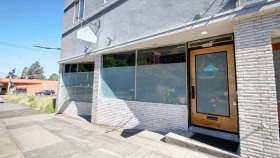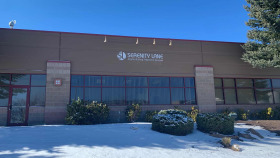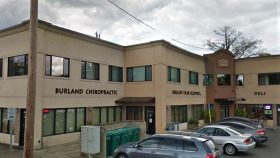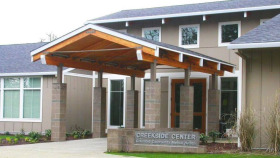Expert Insights
In 2010, an estimated 13.3% of adults in Oregon used illicit drugs but, by 2023, that number had risen dramatically to 59%. In both 2022 and 2023, Oregon had the highest rates of addiction in the nation.
But new laws have been enacted to reverse this troubling trend. These laws empower police to connect persons in possession of illicit drugs to treatment in lieu of arresting them, a process known as “deflection.” Between September 1 and December 6, 2024, more than 400 Oregonians entered a deflection program.
As of January 28, 2025, more than 80% of those had remained in active addiction treatment, demonstrating the critical importance of evidence-based care for persons experiencing dependency. Prison isn’t your destiny. With treatment, restoration and recovery are possible.
~ Gayle Morris, BSN, MSN
How Much Does Drug Rehab Cost in Oregon?
Oregon is ranked 45th nationwide in terms of addiction treatment affordability, with an average cost of drug and alcohol rehab of $58,894 (without insurance).
- Medical detox is the most expensive, with an average cost of $145,195
- Long-term inpatient drug rehab in Oregon costs an average of $51,970
- Outpatient addiction treatment in Oregon costs an average of $8,635
- Outpatient methadone treatment is the most affordable, with an average cost of $7,673
Oregon rehabs exist on a continuum from detox to residential treatment to outpatient treatment. The cost of addiction treatment can vary considerably depending primarily on a few factors:
Treatment setting (inpatient or outpatient)
Features and amenities (luxury or standard rehab facility)
Duration of program (30, 60, or 90 days)
Health insurance plan
Choosing a rehab facility in-network with health insurance provider
Government funding
Location (city vs. suburb)
Some treatment programs also offer financial assistance and payment plans. State-funded rehabs offer treatment services to Oregon residents who qualify for financial assistance. There are 1,427 state-funded residential rehab beds throughout the state. All of these options are certainly worth asking about if you don’t have insurance or if you have a high deductible.
Paying for Addiction Treatment in Oregon
Private Pay and Insurance
There are many major commercial health insurance carriers in the state of Oregon. Additionally, in 2024, five insurers offered exchange plans on the Marketplace. Commercial providers include:
Kaiser Permanente
Alcohol and Substance use disorder treatment is covered under this insurance plan. They offer coverage for in-patient and outpatient treatment plans. This includes detox services, medication assisted treatment, individual, group and family counseling and recovery support. The total out-of-pocket cost depends on the insurance plan benefits.
Individuals should contact their insurance company to discuss coverage and to verify if prior authorization is needed for their individual treatment needs.
Aetna
Aetna of Oregon covers alcohol and substance use disorder treatment. Coverage and out-of-pocket expenses depend on the individual’s benefit plan.
These services may include inpatient and outpatient treatment, online and in person counseling services, and case management. Medication assisted treatment using Suboxone, Vivitrol or methadone is a covered service.
Individuals can contact their Aetna 360 Behavioral Health Program, and a care advocate will work on determining what the best substance abuse treatment options are for each circumstance. They offer services by licensed healthcare providers.
Prior authorization and Prior notification for some services is required for coverage.
United HealthCare
Alcohol and substance use disorder treatment are covered services with UHC. Benefit plans differ, so individuals will need to check their explanation of benefits summary to identify what are covered services and what the out-of-pocket cost will be. Prior authorization may be required for services.
UHC offers members a 24/7 substance use helpline number at 1-855-780-5955, individuals or family members can call in crisis or for information regarding treatment options, provider directory and resources in their community.
PacificSource Health Plans
PacificSource offers individual, family, employer sponsored, and Medicare plans. Alcohol and substance use disorder treatment are covered services. Benefit plans differ, and individuals should check with their provider to determine the covered benefits and what the out-of-pocket costs will be. This plan may require that you use in-network providers for maximum benefit coverage.
Prior authorization and Prior notification for some services is required for coverage.
Moda Health
Moda Health of Oregon covers alcohol and substance use disorder treatment. All services must meet the companies definition of medical necessity and most require prior authorization and use of in-network and participating facilities. They may include services such as in-patient and outpatient services, including medication assisted treatment, individual and group counseling, and early intervention programs.
Individuals should contact their provider to determine what treatment options are covered and what the out-of-pocket costs will be.
Medicaid
Oregon Health Plan provides health insurance coverage for residents who meet certain criteria such as income level, asset requirements, age,residency and certain medical conditions. These Medicaid plans cover inpatient and outpatient substance use disorder treatment services at facilities that accept this type of insurance. Since Oregon has a Medicaid system that offers individuals different types of benefit plans, for example some purchase plans on the marketplace and pay a fee for service, individuals need to check with their provider to determine what are covered services.
Medicare
Medicare provides insurance coverage for individuals over the age of 65 and in some cases individuals with disabilities and certain disorders. Medicare Part A pays for inpatient substance abuse treatment. Clients are required to pay the same co-pays they would be charged for any other type of inpatient hospitalization. For those with Medicare Part B, outpatient substance abuse treatment services from a clinic or hospital outpatient department are covered.
Military Insurance
TRICARE and VA benefits are accepted at participating providers throughout the state of Oregon. For those with alcohol and substance use disorders, the Veterans Administration offers inpatient and outpatient services at their clinics and hospitals at no cost.
Tribal funding/programs
All individuals of Native American or Alaska Native descent are eligible for health care and Medicaid through the Indian Health Service. Alcohol and substance use disorder treatment are covered services.
Other Low-Cost Options
For those individuals without commercial insurance, government sponsored insurance, or insurance through military service, some providers will accept sliding scale payment options, no fee for service, or financial aid. Clients will need to speak with service providers to find out what options are available to them.
Free Addiction Treatment Programs in Oregon
As of 2024, there were over 260 drug rehab facilities across the state of Oregon. These facilities accept several payment methods. Of those treatment facilities, the following numbers reflect how many accept their respective payment methods:
There are 135 low cost or free addiction treatment centers in Oregon. Their services include inpatient and outpatient treatment options, including intensive outpatient treatment, relapse prevention, and aftercare programs. Some of these treatment options also include medication assisted treatment, where clients receive medications such as naltrexone, methadone, and buprenorphine to ease withdrawal symptoms and decrease cravings.
Because many individuals experiencing alcohol and substance use disorder also have co-occurring mental illnesses, such as bi-polar disorder, depression, anxiety, and PTSD, many addiction treatment centers in Oregon offer mental health services as well.
Case management services also engage those facing homelessness, food insecurity, and unemployment by connecting clients with resources in their communities. Often, clients work with healthcare and insurance specialists to enroll in government funded health care plans such as Medicare or Medicaid.
Save Lives Oregon
Save Lives Oregon is a collaborative initiative founded by the Oregon Health Authority and leading non-profit organizations in Oregon. Their main goal is substance use harm reduction and safer, healthier communities.
Through Save Lives Oregon, those who experience substance use disorder or their friends and family can obtain life-saving supplies like Narcan through participating community organizations.
In addition to harm reduction supplies, they offer distribution of personal care supplies, provide essential medical care, assist in locating resources to combat co-existing crises such as homelessness, food insecurity, and unemployment.
Oregon Hopeline
Oregon Hopeline Is another program for those who need resources regarding alcohol and substance use disorders through the Oregon Health Authority. This program is available online and via telephone 24/7. Individuals can reach out to trained peer specialists for information on services including harm reduction, treatment, recovery and support services.
Portland Rescue Mission
The Portland Rescue Mission is a no cost resource serving the Portland area. They offer services to assist those facing crises such as homelessness, food insecurity, domestic abuse and substance use disorder. These include emergency housing, free daily meals, vocational training, and transitional support. They have long term support services to help individuals on their recovery journey. This is a Christian based organization.
Blanchet House
Located in Portland, Blanchet House is a non-profit organization that serves individuals facing homelessness, food and clothing insecurity, and substance use disorder. They offer individuals services such as free daily meals, distribution of personal care items and clothing. Their unique Blanchet Farms Residential Program offers men services to promote sobriety, housing, employment and stability This program is located just outside of Portland in Yamhill County. Here, individuals work with case managers to put together individual plans to get on the path to recovery. This program is free of cost; however, participants are expected to provide support to the facility through work and program participation.
2-1-1
2-1-1 service of Oregon is a service that offers Oregonians several resources for alcohol and substance use disorder education, prevention services and treatment information. Their 2-1-1 service is a resource that can be accessed from any county in Oregon by dialing 2-1-1 on a cell or landline telephone. Here one can reach care workers that can answer questions and direct them to services. Additionally, they can offer resources for those who may face homelessness, food and medical service insecurity and domestic abuse.
Oregon Drug Use Statistics
Oregon has a rate of substance use disorder among adolescents and adults that is higher than the national average.
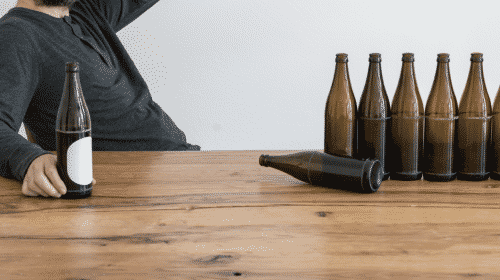
The rate of alcohol use disorder is 7.7%, while the national average is 5.3% of the population.

In 2020, 634,000 residents met criteria for addiction treatment, but did not engage in treatment.

In 2021, drug overdose deaths in Oregon rose 33.6% to 1,069 in 2021 – the fifth largest increase in the U.S.

In 2021, one third of Oregon’s counties saw more people die from fentanyl than from any other drug
Drug Laws in Oklahoma
HB 4002
Passed in 2024, this law was in response to a standing law referred to as Measure 110, which decriminalized possession of small amounts of controlled substances including heroin, methamphetamine, PCP, LSD and Oxycodone to a Class E Civil Violation.
As of September 1, 2024, possession of any amount of a controlled substance will be charged as a misdemeanor with a potential of up to 180 days in jail.
Marijuana Laws
Passed in 2015, marijuana was made legal for recreational use in Oregon. Individuals can possess up to 1 ounce of marijuana in public.
Smoking is still prohibited in public places including within 10 feet of a door, window, or air intake of any business or workplace.
An individual cannot purchase more than the following at any one time or within one day:
- 2 ounces of marijuana
- 16 ounces of cannabinoid in solid form
- 72 fluid ounces of cannabinoid in liquid form
- 10 grams of cannabinoid used for inhalation
- 4 immature marjuana plants
- 10 marijuana seeds.
Under-Age Drinking
In Oregon, it is legal for a parent or legal guardian to provide alcohol to a minor in a private residence and when occupying that minor.
- ORS 471.430 Minor in possession of alcohol/minor in a prohibited area
Any minor found in possession of alcohol in a prohibited area is subject to a criminal violation and referred to juvenile court. The punishment will be set forth by the court and can include fines, community service and a possibility of alcohol assessment and treatment.
- ORS 471.410(2) Furnishing alcohol to a minor
Any individual, not considered a parent or legal guardian found to be furnishing minor’s alcohol will be charged with a Class A Misdemeanor. Class A Misdemeanor in Oregon could result in jail time of up to 365 days in jail and/or a fine of up to $6,250.
Driving Under the Influence (DUI)
In Oregon, any person found with a blood alcohol content (BAC) of 0.8 or higher is considered impaired and considered to be driving under the influence of alcohol.
- 1st offense is considered a misdemeanor requiring a license suspension of 90 days with fines of over $600. There is a mandatory ignition lock of up to one year.
- 2nd offense is considered a misdemeanor with a license suspension of one year and fines of nearly $1250. There is a mandatory ignition lock of one year. Individuals face 48 hours in jail and a possibility of probation.
- 3rd offense is considered a misdemeanor with a license suspension of one year and fines of nearly $2,000 and a mandatory ignition lock of two years. Individuals face 48 hours in jail and a possibility of probation.
- 4th offense is considered a misdemeanor with a license suspension of one year and may result in a permanent loss of driving privileges. Fines of nearly $2,200 and a mandatory ignition lock of five years if license is reinstated. Individuals face 90 days in jail.
- 5th offense is considered a felony with a minimum of one year license suspension and may result in a permanent loss of driving privileges. Fines of $125,000 and a mandatory ignition lock of five years if license is reinstated. Individuals face a minimum of 90 days and up to five years in jail.
Resources
- Kaiser Permanente. (2024). Drug and alcohol treatment and recovery. https://healthy.kaiserpermanente.org/colorado/health-wellness/addiction-and-recovery/drug-and-alcohol-treatment
- Oregon Hopeline. (2024). Reach out. https://oregonhopeline.org/
- Pacific Source. (2024). Important mental health and substance use disorder treatment. https://pacificsource.com/members/behavioral-health-services
- Save Lives Oregon. (2024). United for the health and dignity of people who use drugs. https://www.savelivesoregon.org/
- United Healthcare. (2024). Substance use helpline. https://www.uhc.com/member-resources/health-care-programs/substance-us

